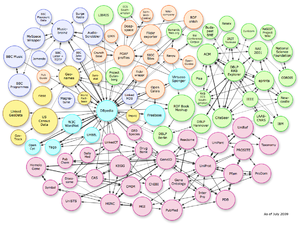
The past few weeks at work have been heavy with getting my head around (1) various requirements for measuring research outputs from universities, and (2) requirements for curating and linking for re-use research datasets. It’s all about measurable data. Citation counts, journal rankings, figures from experiments, surveys, tests. And having an Arts and History background I am always attentive to how the less mathematical disciplines are handled in such processes, too. And when I think of publications by academic historians I know personally I recall the extensive research that they have undertaken to produce stories that are grounded in massive amounts of collected data. It comes from newspapers, police and town council records, diaries, etc. Even ancient histories I read — the development of Athenian democracy, for example — are based on masses of diverse documents and archaeological reports. (One almost gets the impression that topics are chosen, questions are asked, research is undertaken, in accordance with areas for which there is such evidence.)
And then I recall last night I was re-reading a few pages from Paula Fredriksen and Maurice Casey justifying their historical claims about the personal relationship Jesus had with John the Baptist. Neither has any real data about such a relationship on which to ground their discussions. The Gospels in fact don’t speak of such a relationship between them. It is all speculation. Note, for example, how Fredriksen manages to convey a sense of multiple sources for her conclusions, and note the smoke and mirrors at work:
What we do know past doubting is that John had a crucially important impact on Jesus. (p. 191 of Jesus of Nazareth, King of the Jews)
That is a strong statement. But now look at what it is based upon: Continue reading “More games played by (some, many?) biblical scholars with “research data”, and personal reflection on why I post this stuff”
